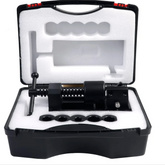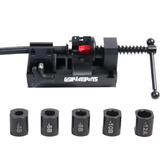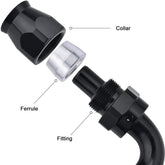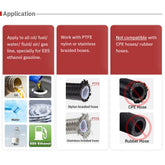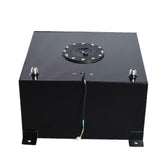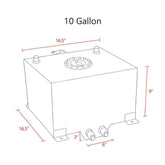Diesel Particulate Filters (DPFs) have emerged as vital components in modern diesel engines, significantly contributing to the reduction of harmful emissions and ensuring compliance with stringent environmental regulations. As awareness of air quality and environmental impact continues to grow, it becomes crucial for vehicle owners to comprehend the functions and benefits of DPFs.
What is a Diesel Particulate Filter (DPF)?
Diesel Particulate Filters, commonly known as DPFs, are specialized devices integrated into the exhaust systems of diesel engines. Their primary function is to capture and eliminate diesel particulate matter or soot from the exhaust gases, thereby reducing the emission of harmful pollutants into the atmosphere.
How Does a DPF Work?
Diesel Particulate Filters (DPFs) play a vital role in reducing emissions and maintaining engine efficiency through a dual process of filtration and regeneration. Here's a simplified breakdown of how DPFs function:
1. Filtration: When exhaust gases pass through the DPF, the filter captures soot and particulate matter, similar to how a household air filter traps dust particles. This crucial filtration process prevents harmful pollutants from being released into the environment, contributing to cleaner air quality.
2. Regeneration: Over time, soot accumulates in the DPF, necessitating regeneration to prevent clogging and ensure optimal performance. During regeneration, the trapped soot is burned off at high temperatures, converting it into less harmful gases such as carbon dioxide and water vapor. This regeneration process can occur in several ways:
- Passive Regeneration: Occurs naturally when the exhaust temperature is sufficiently high to burn off the soot without external intervention. This passive process helps maintain the cleanliness of the DPF without the need for additional fuel injection.
- Active Regeneration: Initiated by the engine control unit (ECU), active regeneration involves injecting extra fuel into the system to raise the exhaust temperature. This proactive approach ensures effective cleaning of the DPF, preventing potential blockages and maintaining efficiency.
- Forced Regeneration: Conducted manually by a mechanic using diagnostic equipment to trigger the regeneration process when passive or active regeneration is insufficient. Forced regeneration is essential for clearing accumulated soot effectively and restoring DPF functionality.
What are the benefits of DPF?
Environmental Protection: DPFs contribute to cleaner air by reducing particulate emissions and lowering the release of harmful pollutants into the environment.
Compliance with Regulations: Essential for meeting stringent emission standards globally, allowing vehicles equipped with DPFs to operate in areas with strict regulations without penalties.
Improved Engine Performance: Ensures efficient engine operation by preventing soot buildup in the exhaust system, thereby enhancing performance and longevity.
Conclusion
In conclusion, Diesel Particulate Filters (DPFs) play a pivotal role in modern diesel engines by effectively reducing harmful emissions and ensuring adherence to stringent environmental regulations. By capturing and eliminating soot particles from exhaust gases, DPFs contribute to cleaner air quality and enhanced engine performance.
It is imperative for individuals involved with diesel vehicles to comprehend the functionality and advantages of DPFs, as they serve as indispensable components for both environmental protection and optimal engine efficiency. Embracing the significance of DPFs underscores their critical role in promoting sustainability and maintaining the health of both vehicles and the environment.

